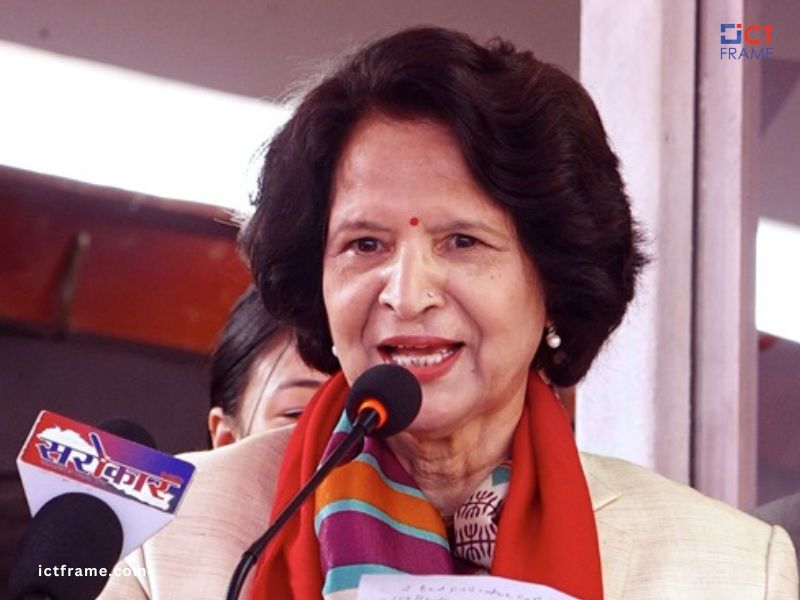Digital Health Focus: Minister Dr. Sharma Dismisses ‘Poor Quality Medicine’ Claims in Nepal’s Health Insurance Program
Health Insurance Nepal
10th November 2025, Kathmandu
Health Insurance Nepal is a crucial part of the nation’s welfare system.
Health Insurance Nepal
Misinformation regarding the quality of medicines supplied under this scheme is simply false. Health and Population Minister Dr. Sudha Sharma Gautam recently addressed this issue.
She assured the public that the government is actively working to improve the scheme and solve its existing problems. Her remarks were made during the 31st-anniversary celebration of Bhaktapur Cancer Hospital and the inauguration of its new laboratory building.
Addressing Misinformation Head-On
Minister Sharma categorically denied the allegations about substandard medicines. “The notion that health insurance medicines are of poor quality is wrong,” she stated.
She urged citizens not to fall for such confusion. The Minister suggested that certain individuals with vested interests in the private medicine business might have initiated the “misleading news.”
Therefore, Health Insurance Nepal beneficiaries should remain vigilant against such propaganda. “The claim that health insurance medicines are of poor quality is incorrect.
We urge everyone not to fall for this confusion. Certain elements, possibly from the private medicine business, may have spread this misleading news. We must all be cautious.”
Commitment to Digital Reforms and Service Improvement
The Minister acknowledged that the health insurance program currently faces various challenges. However, she emphasized the government’s commitment to incremental and continuous improvement.
This resolve extends beyond just medicine quality. A key area for improvement, especially for an ICT portal audience, is the integration of digital solutions.
Nepal’s health sector requires robust digital infrastructure. Implementing an efficient, transparent, and centralized digital platform for the Health Insurance Nepal scheme is essential.
Such a system would help to reduce administrative friction and enhance accountability. Digital record-keeping and e-prescriptions could also ensure better tracking of medicine quality and supply chain.
Enhancing Healthcare Delivery with Technology
For the program to succeed, a major focus must be on leveraging Information and Communication Technology (ICT). Technology holds the key to streamlining patient registration, claim processing, and reimbursement.
- E-Health Records: Adopting electronic health records (EHRs) would provide seamless access to patient history for authorized providers, improving care coordination.
- Blockchain for Supply Chain: Utilizing blockchain technology could secure the medicine supply chain. This would allow authorities to trace pharmaceuticals from the manufacturer to the patient, preventing the entry of poor-quality or counterfeit drugs.
- Mobile App Integration: Developing a user-friendly mobile application could simplify enrollment, premium payments, and finding impaneled healthcare facilities under the Health Insurance Nepal scheme.
These digital interventions would directly counteract the negative perceptions that the Minister addressed and actively improve the scheme’s performance.
Upholding Constitutional Rights to Health
The Minister reiterated the government’s steadfast commitment to implementing the constitutional provision of free basic health services. The government has formulated a basic health service package in accordance with the law. Its successful implementation is a top priority.
Ensuring every citizen can access free and quality basic healthcare is a fundamental right. Technology can be a powerful equalizer in this regard. Telemedicine services, for instance, can extend the reach of specialized care to remote areas.
This is especially vital for a geographically diverse country like Nepal. Furthermore, data analytics and business intelligence tools can help the government identify geographical areas with service gaps or high instances of specific diseases, allowing for targeted resource allocation.
The Path Ahead: Transparency and Public Trust
The challenge of perception, as highlighted by the Minister, is often a matter of transparency. In the age of ICT, information must be readily verifiable.
The Health Ministry should consider publishing key performance indicators (KPIs) of the Health Insurance Nepal scheme on a digital dashboard. These KPIs could include:
- Medicine procurement and distribution figures.
- Claim processing times.
- Patient satisfaction scores.
Transparency through digital governance will rebuild public trust. This is a critical step in countering rumors and ensuring citizens are well-informed.
The Minister’s assurance to progressively improve the scheme is a call to action for the health and ICT sectors to collaborate closely for a digitally empowered health system in Nepal.
This ongoing reform effort will make the national Health Insurance Nepal program a model of efficiency and quality.
For more: Health Insurance Nepal







